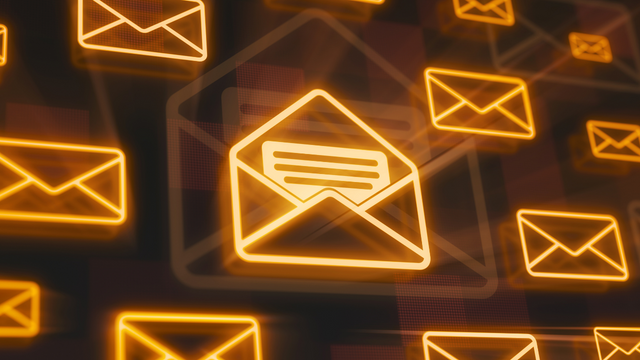If you're concerned about privacy or have received too many spam emails, disposable email addresses may be your best bet. These temporary accounts allow you to explore new sites without jeopardizing your primary email account.
Dark email addresses (DEAs) have become more and more popular as users search for ways to avoid spam and protect their personal information from data breaches. Unfortunately, DEAs can pose risks to your email deliverability if not managed properly.
Secure Your Web Browsing
In today's digital world of data theft and privacy threats, it's essential that you know how to secure your web browsing and optimize for optimal experience. Here are a few tips to get you started:
Use a modern browser for general web browsing, as older versions may be vulnerable to malware and other security risks. Furthermore, keeping your web browsers up-to-date is recommended since security flaws are frequently discovered and addressed in the latest releases of these programs and operating systems.
Make sure your web browsers are set to automatically download and install updates whenever possible. Doing so can help avoid critical security flaws from occurring in the future.
To determine whether a website is secure, look for the green padlock icon or URL address bar. Websites without this symbol tend to be unsafe and should be avoided at all costs.
If you don't want to enter any personal information on a site, such as your email address, consider creating a disposable email account. These accounts are easy to create and don't need a password.
Disposable emails are especially beneficial for marketers who often need to create a large number of temporary email addresses. With these addresses, you don't need to compromise any of your legitimate emails and the process is completely free.
When creating disposable email accounts, it is essential not to disclose any sensitive personal information like your social security number or bank account numbers. These details can easily be collected and stolen by hackers.
Additionally, disabling auto-complete for forms on websites you visit is recommended. Doing so can help protect your data from attackers hijacking your browsing session and gaining access to it.
Some web pages also contain pop-ups, which are windows that appear when you click on links or advertisements on the page. Many pop-ups are harmless but some can be malicious and deliver malware or spyware to your computer.
To safeguard yourself against these threats, disable auto-complete for forms on your browser and delete any stored passwords. Alternatively, use a reliable third-party browser that offers private browsing without storing temporary browsing data.
Optimize Your Online Experience
Disposable email addresses are frequently used to sign up for accounts and take advantage of free trials without using your primary address. They're also a popular way for users to avoid spam messages and data breaches. Unfortunately, these temporary accounts can have negative consequences on business owners and online creators as well.
Disposing of disposable email addresses can have several detrimental effects on your business and its email marketing campaigns, such as higher bounce rates and decreased conversions. Fortunately, there are tools available to detect and eliminate disposable addresses from your subscriber list.
You can do this by scanning your list with MailerCheck, which automatically detects and filters disposable emails, addresses with typos or syntax mistakes, catch-all addresses and full inboxes. Afterwards, download a list of these addresses so that they are excluded from future campaigns.
Another way to identify disposable email addresses is by looking up their domain names on a database for disposable email domains. These lists are typically maintained by third-party providers and can usually be accessed through search engine indexing services.
Once you have located a disposable email domains database, you can search the name of the email address by pressing either CTRL+F (for Windows computers) or Command-F (Macs). The search should show if your email address is included in the list.
This can be a time-consuming task, but it's essential for protecting your email marketing campaigns and subscribers from disposable email addresses. By adopting this simple strategy, you can reduce bounce rate and boost conversions.
Disposable email addresses not only prevent spam, but they can cause issues for businesses by blocking legitimate opt-ins and decreasing conversion rates. This is especially detrimental if your e-commerce business requires users to create an account before purchasing anything from you.
Furthermore, disposable email addresses may be difficult to track and manage if you use multiple addresses for different websites. This makes it more challenging to reset passwords and access sensitive information such as account info.
To prevent disposable email addresses, the best approach is to encourage users to sign up with their real, valid email addresses instead of creating them from scratch. This can be accomplished through customer experience optimization (CXO), an ongoing process involving close collaboration between marketing, sales and customer service departments. CXO strives to meet customers' evolving needs while providing exceptional service at each touchpoint.
Prevent Spam
Spam is an intrusive form of bulk communication sent via email, text messages, social media platforms and phone calls. The term itself originated in a Monty Python skit in which diners dressed in Viking costumes declared that everyone must eat Spam regardless of whether they want it or not.
Spammers send out approximately 333 billion emails daily, often using spam techniques like viruses or phishing scams that can disrupt your online experience and compromise data security.
Spam can be a real nuisance, but there are ways to minimize its influence over your online activities. Spam filters and other tools can help block most unwanted messages while still allowing legitimate communication from trusted organizations to pass through.
If you receive a spam message, don't open or respond to it. Instead, use your spam filter to delete or place the message in a spam folder for future reference.
Be wary of spam messages that attempt to pressure you into purchasing a product. These could include offers for a new car, home or luxurious vacation.
Spam messages, in addition to promoting products or services, can also be used as a means to entice users into sharing personal information. For instance, one spam message may contain a link that requests your social security number or other sensitive data - this type of info is especially valuable to scammers as it enables them to steal your money or identity.
Spam email messages with malicious links is another common type of spam. These links can be downloaded onto a computer and spread viruses.
Always double-check links before clicking them. Many links may be fake and clicking them could infect your computer with malware or other viruses.
Unfortunately, many malicious links are hidden in plain sight. Be sure to verify the URL and make sure it looks legitimate. Additionally, scan it for any unusual characters or patterns like hyphens or apostrophes.
Keep Your Data Safe
Disposable email addresses are an efficient way to avoid spam emails and protect your primary address from hackers. With them, you can sign up for websites, participate in contests, and make one-off purchases without fear of your confidential information being exposed.
Disposable emails are another useful tool to protect yourself online when signing up to sites with less-than-stable security practices. Many websites rent or sell their email lists, so if you share your personal details with them, who knows where it could end up next. Using a disposable email address when signing up for these websites keeps your real email safe from malicious hackers searching for unprotected data on the dark web.
Due to recent privacy scandals and data breaches, users are becoming more wary of sharing their personal information online. They worry that their email address may be sold to third parties or placed on a list with people receiving unwanted marketing emails.
Due to this, many are turning towards disposable email addresses when signing up for websites or mailing lists. Fortunately, there are plenty of disposable email services available and you can quickly obtain a temporary email address in just minutes.
Some of these services even provide the feature to set up a white list, ensuring only desired senders can send mail to your temporary account. Unfortunately, some may not be as user-friendly as one might hope and allow spam emails from unscrupulous parties.
If you're uncertain whether or not to use a disposable email service, research the pros and cons. Additionally, try out different disposable email addresses yourself to see how they function and how user-friendly they are.
You can further bolster the security of your online activities by making sure to use the most up-to-date version of your browser. For instance, Google Chrome's "Privacy and security" settings guarantee it has all relevant security patches installed. Moreover, downloading an email verification tool like MailerCheck helps verify new emails as they come in.




